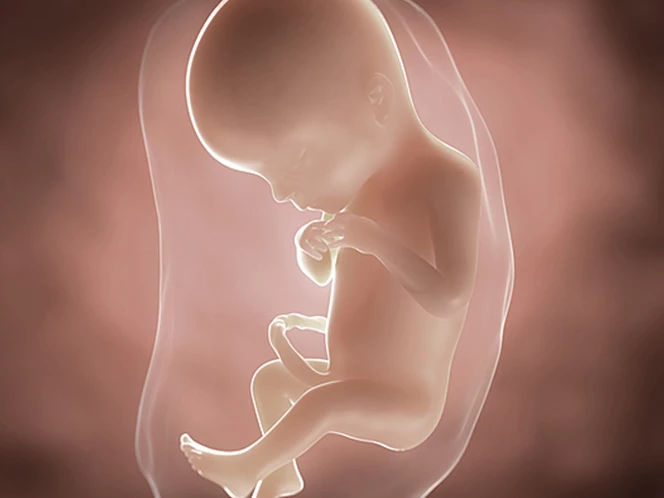At 19 weeks pregnant, your baby is around 15.3cm long from head to bottom, and around 240g in weight. That’s roughly the same size as a beef tomato, only heavier.1
Your baby is now developing one of their most unique features: fingerprints. Along with these appearing, their fingernails and toenails continue growing, and their hands should now be able to make a firm grip2.
Along with the appearance of a protective layer called vernix, a fatty substance called ‘myelin’ is forming around your baby’s nerves3. It’s also protective, insulating their nerves, and supporting motor neurone connections between your baby’s brain and muscles.
Myelin helps your baby to start making movements that are more coordinated3. Newborns’ movements tend to be jerky and uncoordinated, but as they grow more myelin develops, helping their movements become smoother and more coordinated3.









